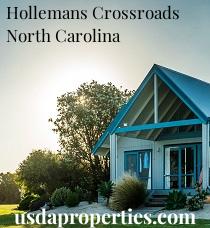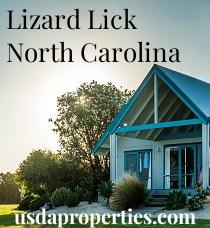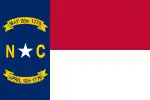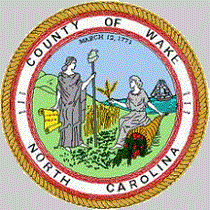Loading Data
Find USDA Eligible Properties in Wake County
 browse list of realtors working in Wake County
browse list of realtors working in Wake County
Wake county has 3 usdaproperties.com realtors ready to help with your search!
| April Featured Agents | |
|---|---|
| Jennifer Lange | from Coldwell Banker-HPW |
| Barbara Brognano | from The Brokerage Real Estate advisors |
Looking to buy in Wake County, North Carolina?
There are 4,024 USDA backed residential loans in Wake county with an average loan balance of $172,332. Over 75% of the loans helped first time home buyers. Borrowers were an average age of 39 years old. The typical appraised home value was around $173,341. On average the rural home size purchased with this loan was approximately 1,827 SqFt. Alternate income limits exist to determine loan eligibility in Wake county. For a household of upto 4 people the income limit is $106,600. For a household of between 5 and 8 people the income limit increases to $140,700.
The size of Wake County is roughly 2,218 square kilometers. USDA defined regions of rural loan ineligibility in Wake cover 1,224 square kilometers of the county. Approximately 55.2% of Wake County is ineligible for traditional USDA home loans. The influence score for Wake County is 2. Look below for the interactive county level map illustration below for more details.
Select from the list of cities below or use the search feature to find active property listings in a city where you would like to live.
Start your search for USDA loan eligible properties in the cities of Wake County, NC ![]()
* cities most likely to have USDA loan eligible properties for sale.
Apex • Auburn • Banks • Barham • Bayleaf • Bonsal • Carpenter • Cary • Clegg • Cloverdale • Eagle Rock • East Parkland • Echo Heights • Emerald Village • Falls • Feltonville • Forestville • Fowlers Crossroads • Friendship • FuquayVarina • Garner • Glen Forest • Glenwood Village • Green Acres • Greenbrier Estates • Holland • Hollemans Crossroads • Holly Springs • Hopkins • Juniper • Kennebec • Knightdale • Lassiter • Leesville • Lizard Lick • Macedonia • Macks Village • McCullers • McCullers Crossroads • Medfield • Milburnie • Millbrook • Morrisville • Neuse • Neuse Crossroads • New Hill • New Light • Pet Crossroads • Pine Hurst Park • Piney Plains • Purnell • Raleigh • Rangewood • Rhamkatte • Riley Hill • *Rolesville • Sandy Plain • Shotwell • Six Forks • Six Forks Crossroads • Stony Hill • Tysonville • Upchurch • Wake Crossroads • Wake Forest • Walkers Crossroads • *Wendell • West Parkland • Westover • Wilbon • Wilders Grove • Williams Crossroads • *Zebulon
A USDA loan is a mortgage option available to eligible homebuyers that is sponsored by the United States Department of Agriculture to promote homeownership in rural communities. USDA Loans, sometimes called "RD Loans," offer 100% financing options on eligible rural properties. USDAProperties can help you find USDA properties in Wake County.
View the detailed USDA boundaries and read about general conditions of
Wake County, North Carolina
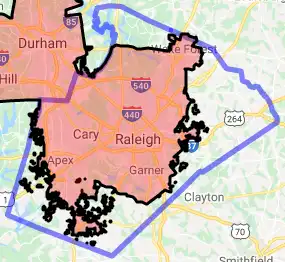 .
.Wake County is located in the heart of North Carolina, with the state capital, Raleigh, as its county seat. Established in 1771, Wake County was named after Margaret Wake Tryon, the wife of William Tryon, who was the governor of North Carolina from 1765 to 1771. The county was formed from parts of Cumberland, Orange, and Johnston Counties, the latter of which also has a county seat named in Governor Tryon's honor, Smithfield.
Wake County played an influential role during the American Revolutionary War as a center for militia activity. In 1792, Raleigh was founded to serve as North Carolina's capital and was strategically located at the center of the state for better accessibility for citizens. The city was named after Sir Walter Raleigh, an English explorer and writer who established a short-lived settlement - the "Lost Colony" - on Roanoke Island in 1584.
Throughout the 19th century, Wake County was primarily an agricultural region, with farmers taking advantage of the area's fertile soil. The county saw significant growth during the 20th century, fueled by the establishment of several prestigious educational institutions and technology companies, such as North Carolina State University, Duke University, and the Research Triangle Park (RTP), one of the largest research parks in the world.
Today, Wake County is the second most populous county in North Carolina and is known for its robust economy, high quality of life, prominent research and educational institutions, and a mix of urban and rural attractions.
Fun Fact: Wake County is home to the annual North Carolina State Fair, which began in 1853 and draws more than a million visitors each year. The event showcases North Carolina's agriculture, arts, and industry through various exhibits, entertainment, and competitions, making it one of the largest and most popular state fairs in the United States.
Featured Cities of North Carolina
